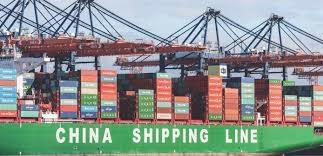 According to the Rabobank China Food and Agribusiness Quarterly covering the second quarter released April 19th, the economy of China is expected to slow due to COVID restrictions. The official National Bureau of Statistics forecast a 7.5 percent year-over-year growth for industrial production through February 2022. Rabobank supports a consensus view of a growth rate of 4.3 percent. The People’s Bank of China has documented a sharp decline in both orders and profitability arising from disruption of supply chains. Accordingly, the Government-controlled bank is supporting financial institutions to boost capital, increase Yuan flexibility and to increase liquidity.
According to the Rabobank China Food and Agribusiness Quarterly covering the second quarter released April 19th, the economy of China is expected to slow due to COVID restrictions. The official National Bureau of Statistics forecast a 7.5 percent year-over-year growth for industrial production through February 2022. Rabobank supports a consensus view of a growth rate of 4.3 percent. The People’s Bank of China has documented a sharp decline in both orders and profitability arising from disruption of supply chains. Accordingly, the Government-controlled bank is supporting financial institutions to boost capital, increase Yuan flexibility and to increase liquidity.
At issue are regional shutdowns in major centers including Shanghai, together with rising input costs due to the world escalation in the price of grains, fertilizers, and energy. A sharp decline in foreign trade is stimulating the State Council to establish domestic markets, moving away from globalization that previously drove the economy of China.

With respect to animal protein in China, domestic pork prices are low attributable to declining demand. This is a direct result of restrictions imposed as the incidence rate of the Omicron strain of COVID soars. With falling prices for pork, producers are liquidating herds, intensifying downward pressure on price. Imports will obviously be restricted other than to build a national stockpile as a central government policy.
Broiler producers benefitted from increased prices during April due to disruption of supply chains, but the situation will return to normal if and when China manages to control the Omicron strain of COVID or alternatively adopt a different policy to widespread home confinement. Sales of all animal protein will be limited by a ten percent decline in the food service sector. Supermarket sales have increased in the short term due to panic buying resulting in shortages on shelves and in coolers, contributing to food inflation.
Chenjum Pan, Senior Analyst for Animal Protein at Rabobank noted a six percent decline in imports of poultry products over the first two months of 2020 to a quantity of 218,000 metric tons. Rabobank reported that Brazil gained in share of imports at the expense of the U.S. based on price and availability.
Questions remain as to the supply of grandparent broiler stock sourced from the U.S. Our supply hatcheries have attained OIE Compartment Status and China should not legally ban imports on the basis of sporadic outbreaks of HPAI in states other than Arkansas and Alabama. In any event, following the 2015 HPAI epornitic, the world’s major, primary broiler breeders established facilities in other nations that could supply China.